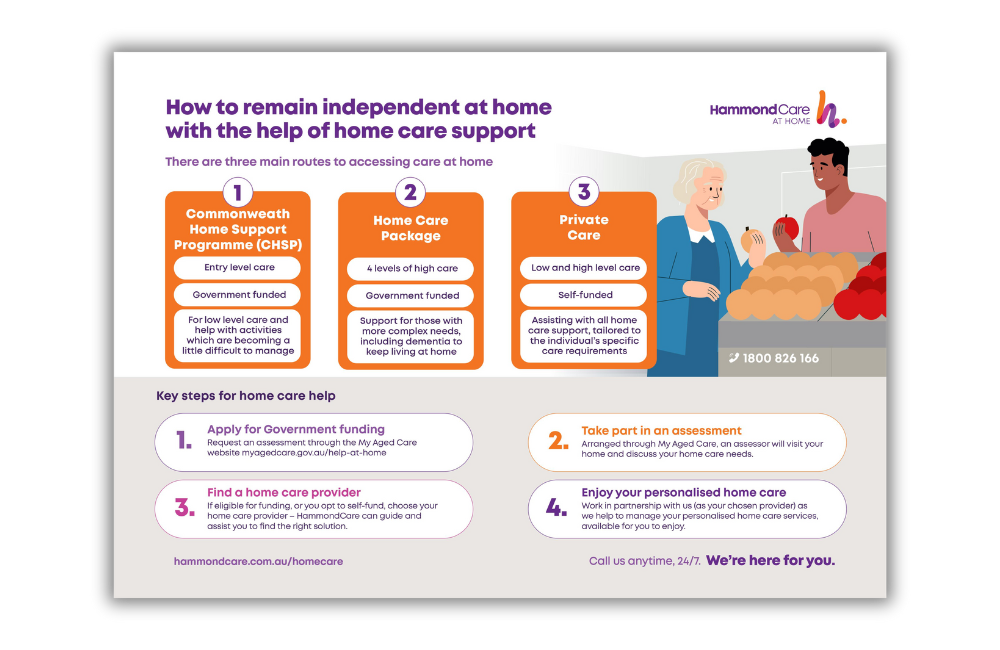Detailed walkthrough to working with home care providers under the NDIS
Detailed walkthrough to working with home care providers under the NDIS
Blog Article
Everything About Home Care Providers for Individuals With Disabilities: NDIS Registered Assistance
Home treatment solutions under the NDIS play a crucial role in supporting individuals with handicaps. These solutions are developed to enhance everyday living via tailored aid, ranging from individual like mobility assistance. Comprehending how to navigate these options can be complicated. This review discovers the different elements of NDIS home treatment, from available services to the choice of carriers, highlighting essential factors to consider for those seeking support. The trip toward empowered care begins right here.
Recognizing the NDIS and Its Purpose
The National Handicap Insurance Policy System (NDIS) functions as a transformative framework created to supply support and services for individuals with specials needs. Developed to enhance the lifestyle and warranty equitable access to essential sources, the NDIS empowers participants by supplying customized plans tailored to their unique demands. It intends to foster independence, enabling people to pursue their personal goals and aspirations.Through an organized strategy, the NDIS designates funding for various supports, including education, work aid, and community participation. This comprehensive system not just concentrates on immediate care but likewise emphasizes long-term developmental results. By advertising choice and control, the NDIS motivates individuals to pick their favored company, assuring that care straightens with their worths and preferences. Eventually, the NDIS stands for a considerable commitment to improving the lives of individuals with impairments, fostering inclusivity, and developing a more encouraging culture.
Sorts Of Home Treatment Solutions Available
Numerous kinds of home care services accommodate individuals with handicaps, mostly concentrating on individual care assistance and respite care alternatives. Individual care support provides important assistance with day-to-day tasks, while respite care supplies short-lived alleviation for main caregivers. Understanding these services is important for ensuring the wellness of both individuals with disabilities and their family members.
Personal Care Support
While navigating every day life can provide challenges for people with handicaps, individual treatment assistance uses necessary support customized to their special needs. This kind of home care service encompasses a variety of activities designed to advertise self-reliance and enhance quality of life. Individual care assistants help with daily jobs such as showering, clothing, grooming, and toileting, guaranteeing individuals keep personal health and convenience. They may likewise aid with meal preparation, medicine management, and wheelchair assistance. By giving personalized treatment, these experts empower people to engage even more totally in their social tasks and daily regimens. In general, personal treatment assistance plays a substantial duty in cultivating dignity and freedom for those with impairments, allowing them to thrive in their home environment.

Reprieve Treatment Options
Break care acts as an essential source for households and caretakers of individuals with disabilities, offering short-lived remedy for the demands of everyday caregiving. This kind of service can take different types, including in-home reprieve treatment, where qualified professionals check out the home to aid with treatment tasks. Families might decide for facility-based respite treatment, where people receive care in a specific environment, allowing caregivers to take a break. Furthermore, some organizations offer emergency reprieve services for unanticipated circumstances. These alternatives not just assist ease caregiver tension but additionally advertise the wellness of people with disabilities by supplying them brand-new experiences and social interaction. In general, break care plays a vital duty in sustaining both caregivers and those they care for.

Exactly How to Accessibility NDIS Home Treatment Solutions
Accessing NDIS home treatment services involves recognizing the eligibility standards stated by the National Special Needs Insurance Plan. People must browse an organized application process to safeguard the needed support customized to their requirements. This area will certainly make clear both the qualification demands and the steps associated with obtaining solutions.
Qualification Criteria Described
To get NDIS home treatment solutions, individuals must fulfill specific qualification requirements that analyze their needs and situations. Applicants need to be matured in between 7 and 65 years and have a permanent and considerable disability that impacts their ability to do daily tasks. Furthermore, they must be an Australian person, a permanent citizen, or hold a Protected Unique Group Visa. The NDIS requires evidence of the disability, generally through clinical assessments or reports. Individuals must show that they call for assistance to participate in social and financial life. These standards assure that services are guided in the direction of those that genuinely require aid, promoting click here for more independence and enhanced quality of life for individuals with specials needs.
Application Refine Steps
Can I Select My Very Own Support Workers Via NDIS?
The specific made inquiries whether they could select their very own support employees under the NDIS framework. Normally, individuals have the versatility to pick assistance workers, cultivating customized treatment that lines up with their specific requirements and choices.
What Occurs if My Needs Modification After Getting Support?
They must interact these changes to their solution copyright if an individual's demands modification after obtaining assistance. Changes can be made to the care strategy, ensuring that the assistance stays efficient and relevant for their circumstances.

Exist Limits on The Amount Of Hours of Care I Can Get?
The individual click here to find out more made inquiries about possible limitations on the variety of care hours obtained. Usually, such restrictions might exist based upon details plans or moneying setups, highlighting the significance of reviewing contracts and guidelines routinely.
Can I Use NDIS Funding for Home Alterations?
The inquiry of utilizing financing for home adjustments emerges frequently. Typically, people might use NDIS funding for necessary adjustments to their homes, guaranteeing accessibility and safety, set upon meeting details qualification criteria and standards.
Just how Do I Take care of Grievances About My Home Treatment Services?
To address complaints about home care services, people need to initially record their worries. After that, they can communicate straight with their company, seeking resolution, or rise the issue to pertinent oversight bodies if needed. Home treatment solutions under the NDIS play a crucial role in sustaining individuals with impairments. Various kinds of home care solutions provide to individuals with specials needs, mainly focusing on personal treatment aid and respite care options. support at home provider. Personal care support provides important assistance with day-to-day tasks, while break care supplies short-lived relief for key caregivers. Families might decide for facility-based reprieve care, where people obtain care in a customized setting, allowing caregivers to take a break. Just how can families successfully take care of the financial aspects of home care services for individuals with disabilities?
Report this page